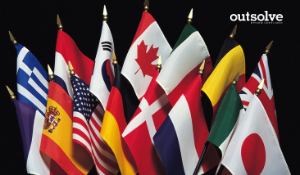Non-U.S. citizens working abroad may be excluded from OWBPA disclosures
On January 14, 2021, the Equal Employment Opportunity Commission (EEOC) issued a formal Opinion Letter clarifying whether non-U.S. citizen employees working for a U.S. company outside of the United State must be included in the disclosure required for compliance with the Older Worker Benefit Protection Act (OWBPA).
History
In 1990, the OWBPA was enacted and amended the Age Discrimination in Employment Act (ADEA) to impose specific requirements for releases of ADEA claims. The OWBPA states that an employee may not waive any rights afforded to them under the ADEA unless that release is made “knowingly and voluntarily.” The employer must give employees age 40 and older a minimum of 45 days to consider whether to sign the release agreement and seven days to revoke the agreement after it has been signed.
In addition, when an employer offers severance to two or more employees in exchange for an agreement that includes a waiver of claims under the ADEA, they must provide the employee with written information of: (1) any class, unit, or group of individuals covered by such program, any eligibility factors for such program, and any time limits applicable to such programs, and (2) the job titles and ages of all individuals eligible or selected for the program, and the ages of all individuals in the same job classification or organizational unit who are not eligible for the program. Even though EEOC describes the “class, unit, or group” of individuals “eligible or selected for the program” as the “decisional unit”, the regulations failed to clarify who that included.
The EEOC’s Opinion Letter concludes that “employers subject to the requirements of the ADEA are not required to include in OWBPA disclosures employees working outside the United States who are not U.S. citizens because such individuals are not ‘employees’ for purposes of the ADEA.” However, U.S. citizens working internationally and international employees working in the United States for U.S. companies would need to be included in the disclosure. U.S. citizens working outside the United States for non-U.S. companies would not.
Founded in 1998, OutSolve has evolved into a premier compliance-driven HR advisory firm, leveraging deep expertise to simplify complex regulatory landscapes for businesses of all sizes. With a comprehensive suite of solutions encompassing HR compliance, workforce analytics, and risk mitigation consulting, OutSolve empowers organizations to navigate the intricate world of employment regulations with confidence.
Recent Posts

New Executive Orders May Require Labor Law Poster Updates

HR Compliance Checklist: What Every HR Pro Needs to Know
Related Posts

How to Ensure Your Pay Practices are Non-Discriminatory
Administering fair compensation practices is not just the right thing to do, it is essential for legal compliance, maintaining a positive workplace...

Employer Responsibility: Workplace Non-Discrimination Under Federal Law
The world of employment law continues to change. For HR, staying informed about employment law changes and their implications is crucial. One of the...

Compensation Benchmarking: The HR Leader’s Complete Guide
Setting salaries can feel like a guessing game. If you pay employees too little, they leave for better offers. If you pay too much, you strain your...


